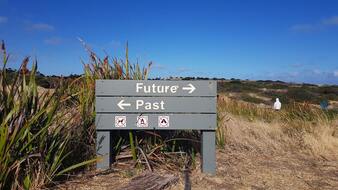|
A couple of weeks ago I wrote a blog post explaining a bit about EMDR. I've been using it for a few months now, so wanted to share from a therapist's perspective how I'm finding it. As with all the other therapies I use, I've been using EMDR in my NHS work and also my private work. I'm not fully trained yet, which my clients know, but so far people have been happy to come along on this journey with me (and of course, we wouldn't use EMDR if they weren't happy about that). I wanted to reflect a bit on my experiences of EMDR as a therapist, and also what I'm hoping to do with this (new to me) therapy in the future. Just notice that... The first thing you notice with EMDR as a therapist is that it's quite different to "usual" therapy. You're asking for really brief answers from your clients between sets, and I've found this difficult at times. I very much understand the rationale for keeping things brief (when processing trauma we want to keep the person in "processing mode," for want of a better phrase, and longer discussions knock you out of that mode) but if you know me, you'll know that I like to talk and I'm interested in hearing what people have to say! That combination makes it challenging for me to shut up, and I also have to work hard to make sure I'm not coming across as rude when I'm shutting longer conversations down. Making new connections That said, I'm actually really enjoying using a new therapy modality with people. It would obviously be unethical of me to mention anything specific about the work I'm doing, but EMDR is used most commonly for trauma and that's what you're encouraged to focus on after the first block of training. The people I've used EMDR with so far seem to have found it incredibly helpful, and whilst I think they all found it a bit daunting at first, have been keen to give it a try. It really does seem to be helping their brains to make new connections related to trauma, and to help them to process their difficulties. Processing will continue Whilst you do a lot of work in an EMDR session, your brain doesn't just "switch off" after a session and come back online at the same time next week! During training you're taught how to explain to people that EMDR processing is likely to continue and that you just need to let it happen, but that you might experience different symptoms following a session. Most commonly, people report to me that they're really tired after our sessions, and that's definitely a sentiment that I share! I find working with EMDR invigorating, but a few hours after my clinical work finishes I'm definitely more tired on days when I've been using EMDR than days when I haven't. Past, present, future
So far, I've really enjoyed learning more about EMDR and practicing it in a clear, contained way. It's a really structured therapy, and I'm already seeing significant benefits for the people that I work with. I've got more training to do, and I'm looking forward to integrating it into my practice with the other therapies that I use (CBT, ACT, and CFT mainly) so that I can use it flexibly. But I'm still learning, so I imagine that will take a while. I've also heard good things about the use of EMDR for physical symptoms such as pain, and as I work in a physical health setting most of the time, I'm interested in how that might work. This blog post might feel a bit self-indulgent, but I like to reflect from time to time on my own experiences as a therapist and how they affect those around me. If you have any experience with EMDR, both as a therapist or as a patient, I'd love to know about it in the comments section.
0 Comments
Leave a Reply. |
AuthorDr Sarah Blackshaw: Clinical Psychologist, blogger, tea drinker, interested in dinosaurs and shiny objects Archives
January 2024
Categories
All
|
Photos from wuestenigel (CC BY 2.0), Ivan Radic (CC BY 2.0), Marco Verch (CC BY 2.0), John Brighenti, wuestenigel, simplicityhunter, Anarchimedia, Find Rehab Centers, wuestenigel, Ivan Radic, Army Medicine, kennethkonica, smallcurio, Jasmic, wuestenigel, JoanDragonfly, BrightStarPhoto21, popofatticus, wuestenigel, forthwithlife, kurotango Clip, ⍘dotism⍘, Tambako the Jaguar, One Click Group UK, Rawpixel Ltd, Blue Mountains Library, wuestenigel, mattbuck4950, h.koppdelaney, verchmarco, The Mom With a Camera, cloudplanner, wuestenigel, verchmarco, OIST (Okinawa Institute of Science and Technology), stevendepolo, juliejordanscott


 RSS Feed
RSS Feed